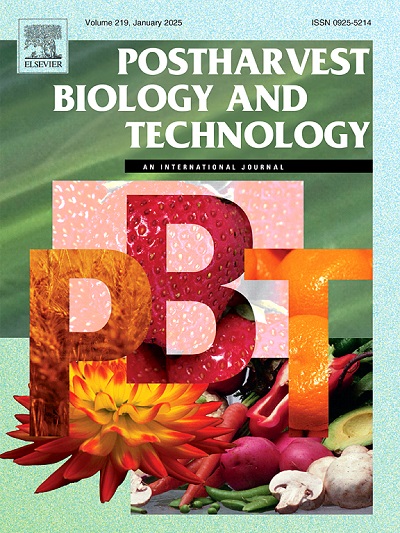Berberine Synergistically Enhances Iprodione’s Antifungal Activity Against Colletotrichum gloeosporioides
IF 6.4
1区 农林科学
Q1 AGRONOMY
引用次数: 0
Abstract
Postharvest diseases, particularly anthracnose caused by Colletotrichum gloeosporioides, pose significant challenges to global fruit markets by reducing quality and marketability. Although traditional fungicides like Iprodione are commonly used for disease control, their effectiveness is increasingly limited by environmental concerns and the emergence of resistant fungal strains. This study investigated the potential of berberine, a natural alkaloid, to enhance the antifungal efficacy of Iprodione. In vitro assays showed that berberine significantly improved Iprodione’s inhibitory effects on fungal growth and conidia germ tube elongation. In vivo tests on apple fruit further validated these findings, showing significant reductions in lesion when berberine and Iprodione were applied together compared to either treatment alone. Western blot analysis revealed that the combined treatment significantly decreased protein phosphorylation in C. gloeosporioides, indicating enhanced dephosphorylation effects. Transcriptomic analysis revealed that berberine downregulates key detoxification and fungicide-resistance genes, such as cytochrome P450s, amidohydrolases, DyP-type peroxidase and membrane transporters, disrupting detoxification pathways and increasing Iprodione’s toxicity. Gene knockout studies indicated that ΔCgADH1 and ΔCgDyPOD1 mutants exhibited increased sensitivity to Iprodione, highlighting their roles in resistance mechanisms. These findings suggest that berberine can synergistically enhance Iprodione’s antifungal activity, providing a promising, eco-friendly strategy for controlling postharvest anthracnose while potentially reducing fungicide usage in the fruit industry.
求助全文
约1分钟内获得全文
求助全文
来源期刊

Postharvest Biology and Technology
农林科学-农艺学
CiteScore
12.00
自引率
11.40%
发文量
309
审稿时长
38 days
期刊介绍:
The journal is devoted exclusively to the publication of original papers, review articles and frontiers articles on biological and technological postharvest research. This includes the areas of postharvest storage, treatments and underpinning mechanisms, quality evaluation, packaging, handling and distribution of fresh horticultural crops including fruit, vegetables, flowers and nuts, but excluding grains, seeds and forages.
Papers reporting novel insights from fundamental and interdisciplinary research will be particularly encouraged. These disciplines include systems biology, bioinformatics, entomology, plant physiology, plant pathology, (bio)chemistry, engineering, modelling, and technologies for nondestructive testing.
Manuscripts on fresh food crops that will be further processed after postharvest storage, or on food processes beyond refrigeration, packaging and minimal processing will not be considered.
 求助内容:
求助内容: 应助结果提醒方式:
应助结果提醒方式:


